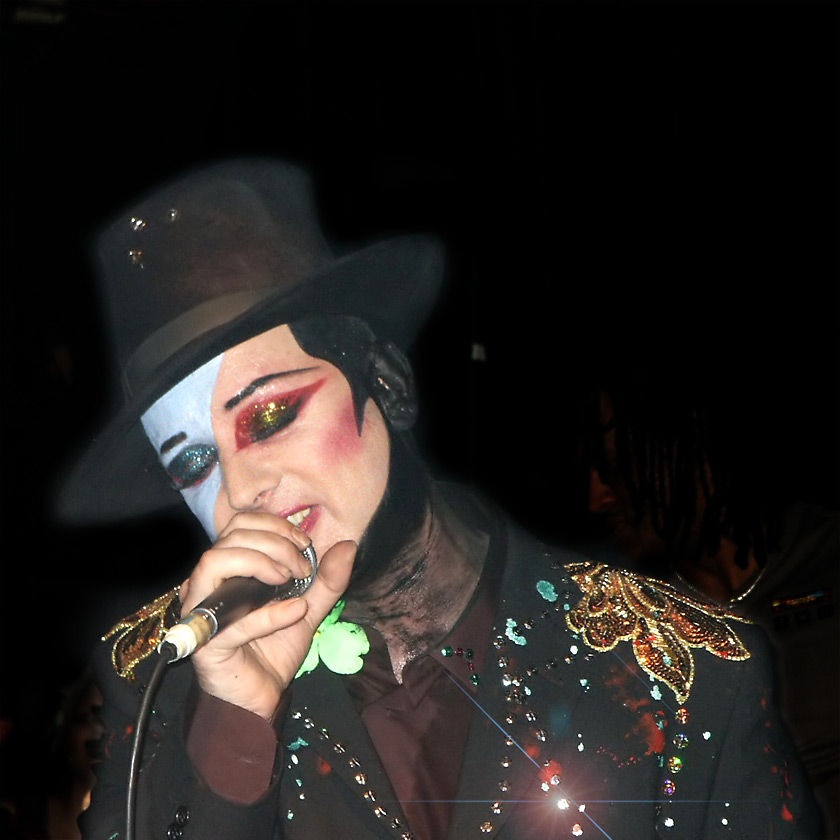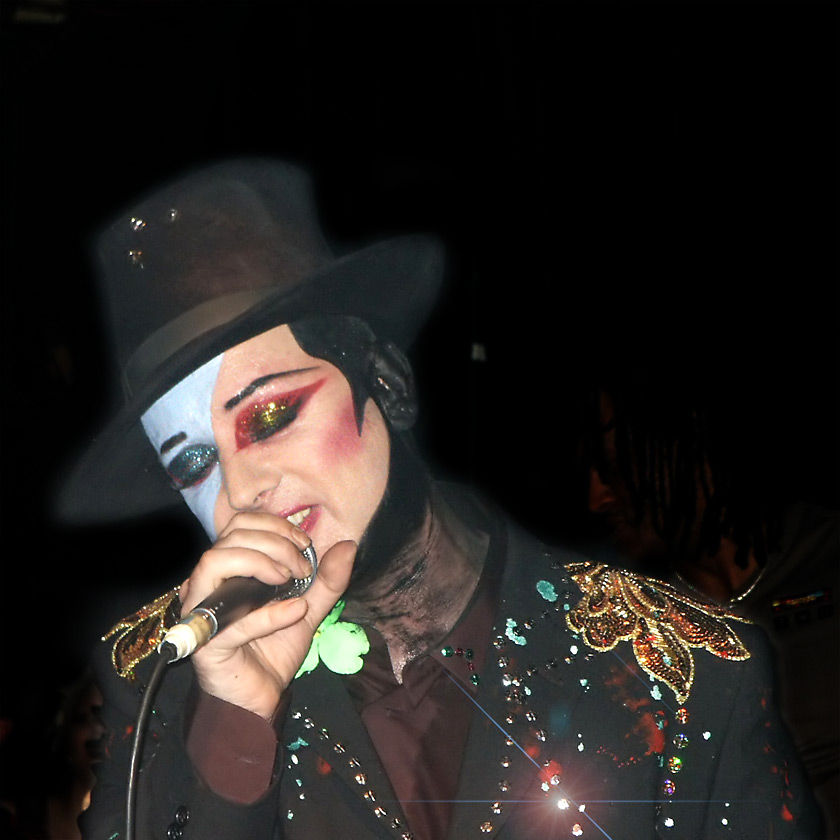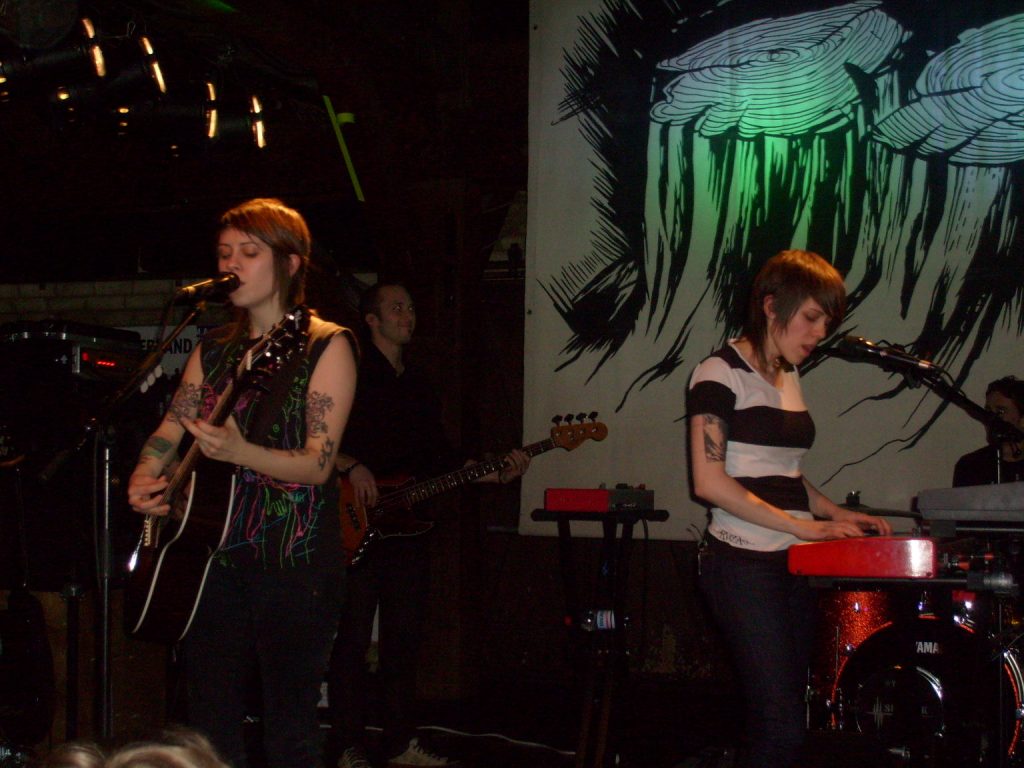Music gives artists a venue to express themselves, educate others and display community pride. From classic rock to electronic dance-pop, music constantly evolves to reflect the trends of the day. Here’s how the LGBTQ community has been represented in the last four decades through music.
The Past
The 1970s bore witness to the first wave of prominent openly LGBTQ musicians in America. David Bowie, known for his gender-bending stage persona Ziggy Stardust, made history by coming out as bisexual in 1972. Singer-songwriter Elton John, who boasts more than 50 Top 40 hits, said he was bisexual in a 1976 interview with Rolling Stone. Queen frontman and glam rocker Freddie Mercury, while never verbally forthcoming about his sexuality to the public, was a flamboyant performer who many believed was a gay man.

This rejection of gender and sexual norms bewildered the majority of Americans. John and Bowie shocked some when they came out. Bowie was well known for his controversial on-stage antics as Ziggy Stardust, which included stripping down to a loin cloth, decorating his face with makeup and simulating oral sex on the guitars of his bandmates. By refusing to answer questions about his sexuality, Mercury had a strong message for the world: He was proud of who he was and didn’t feel the need to validate himself.
Other LGBTQ artists rose to fame in the 1980s, thanks in large part to the trailblazers before them. Jamaican singer-songwriter Grace Jones became a fixture in the 1980s club scene with her androgynous style and breakthrough album Warm Leatherette. She developed a large gay following and became a fashion icon for drag queens. Culture Club lead singer Boy George, who cited Bowie as one of his main inspirations, was a cross-dressing artist whose performances left many curious about his gender and sexuality. He disliked personal questions, however, and for much of his life would only say he “preferred a cup of tea” over sex.

Boy George
In 1993, RuPaul Andre Charles brought drag to the mainstream when his song “Supermodel (You Better Work)” peaked at No. 2 on the Billboard Hot Dance Music/Club Play chart. RuPaul, who came up through the Atlanta gay club scene, joined a growing group of celebrities in the ’90s who publicly owned their identity as queer. He also rejected the notion of a strict gender binary. “You can call me he. You can call me she. You can call me Regis and Kathie Lee; I don’t care as long as you call me,” RuPaul said.
The Present
The turn of the 21st century marked a significant change in LGBTQ music, as even more artists became vocal about their genders and sexualities. In 2001, openly gay vocalist Jake Shears and his friends started a band called The Scissor Sisters. The group, with a name that references lesbian sexual activity, implemented many themes of gay culture into their songs. Canadian indie pop duo Tegan and Sara, openly gay identical twins, gained mainstream success in 2007 after their album The Con charted at No. 34 on the Billboard 200 list. Adam Lambert grabbed the nation’s attention with his flashy style and flamboyant personality on season 8 of American Idol. His 2009 debut studio album, For Your Entertainment, peaked at No. 3 on the Billboard 200, and The New York Times later identified him as “the first openly gay mainstream pop artist” to start a career on a major label.

Now musicians not only own their sexualities and genders — they write songs and albums about them. Over-the-top performance artist Lady Gaga, who cites David Bowie and Freddie Mercury as major musical influences, attracted a massive gay following with her provocative electro-pop songs. In 2011, she released Born This Way, a self-empowerment album centered on the struggles of sexual, gender and racial minorities. Gaga, who is open about her bisexuality, is also a vocal proponent for LGBT rights. She claims that her infamous meat dress, which she wore to the 2010 VMAs while accompanied by gay soldiers discharged under Don’t Ask, Don’t Tell, made the political statement that “when we die, the meat on our bones bears no sexuality, no difference. We should not discriminate against those willing to give their life to protect Americans. Because when our lives are taken, we are meat all the same.”
Singer-songwriter Frank Ocean made headlines when he became one of the first R&B artists to come out of the closet. In a letter posted on Ocean’s Tumblr the singer said he was gay and detailed his first romance with another man. In the song “Bad Religion” on the Channel Orange album, Ocean mentions his struggles with faith and sexuality. “It’s a bad religion to be in love with someone who could never love you. Only a bad religion could make me feel the way I do.”
Despite the controversy surrounding Ocean’s sexuality, Channel Orange peaked at No. 2 on the Billboard 200 and won a Grammy for Best Urban Contemporary Album.
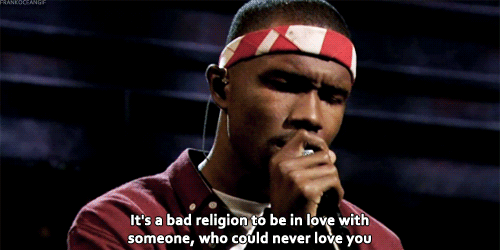
The Future
The number and prominence of LGBTQ artists rises every year. R&B singer-songwriter Janelle Monáe, known for her androgynous style, is intentionally vague about her sexuality and gender expression so listeners can make judgments based on her music, not her personal life. Sam Smith’s album In the Lonely Hour, inspired by his unrequited love for another man, became a worldwide success in this year. Drag queen Adore Delano’s debut album, Till Death Do Us Party, peaked at No. 3 on the Billboard Dance/Electronic charts this summer, which was the highest an album by a drag performer has ever reached. Other artists, such as fiery rapper Angel Haze, Internet personality and indie-pop singer Troye Sivan and “Same Love” vocalist Mary Lambert are potential rising stars who could expand the influence of LGBTQ musicians in the upcoming years even more.
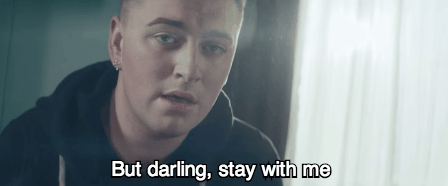
The music industry has had an exponential growth of queer artists in the past 50 years alone. Only a few decades ago, it was a risky career move for an artist to come out of the closet. However, our culture has undergone such an astonishing transformation that LGBTQ artists are no longer famous in spite of their gender expressions and sexualities. Instead, they use their music to spread positive messages about their sexualities, which, in a country that sometimes still struggles to accommodate its LGBTQ citizens, is exactly what we need.
